Apple Watch Series 9 vs Garmin Venu 3: healthy smartwatches do battle
Can Garmin’s smartwatch compete with Apple’s all-conquering Watch Series 9? We pit one against the other to find out.

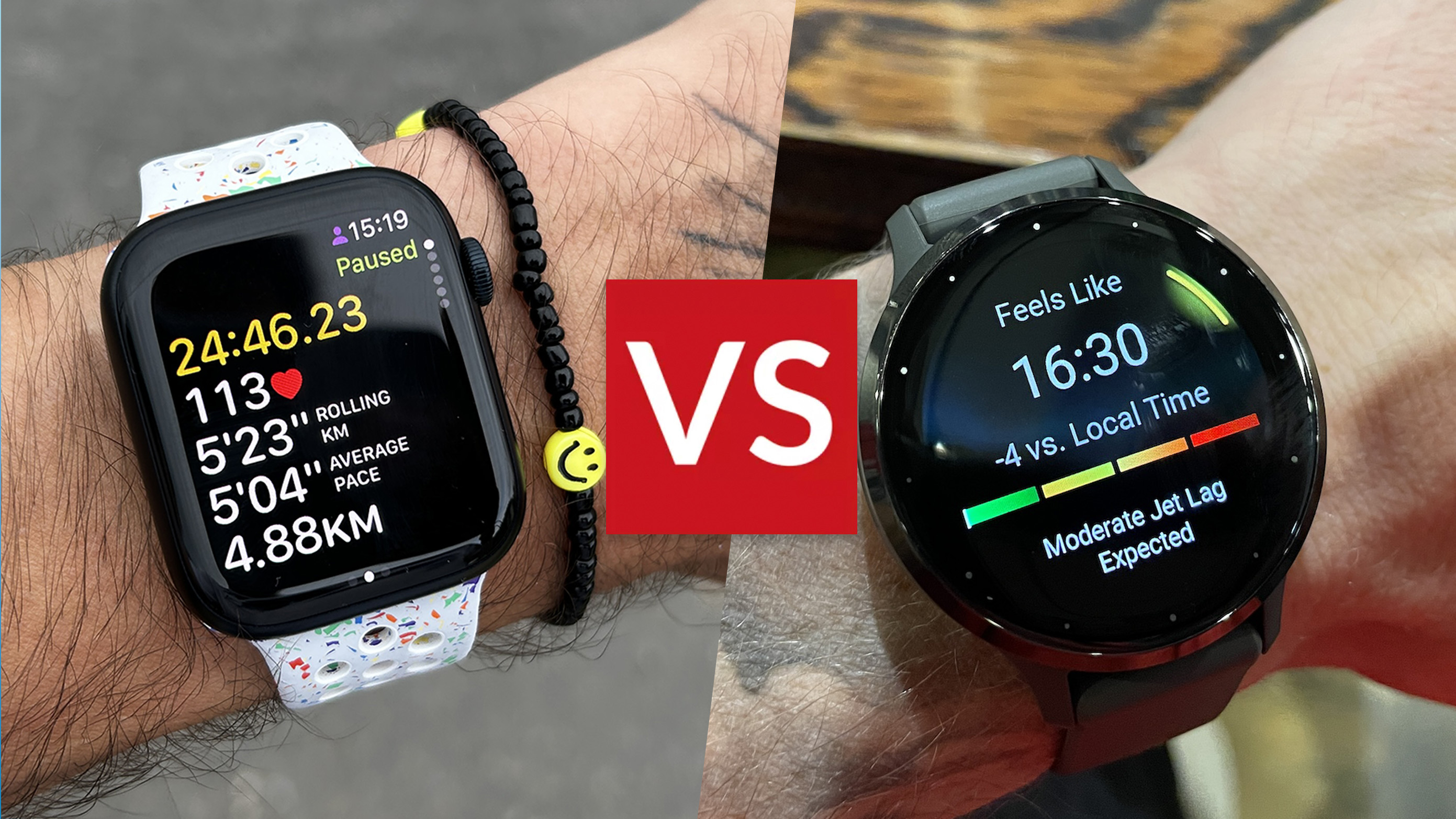
The Garmin Venu 3 is arguably the brand’s most smartwatch-y smartwatch to date, simplifying the user experience with a delightfully bright AMOLED touchscreen and offering things like music and contactless pay from the wrist.
Alas, much of the useful smartwatch functionality, such as the ability to respond to calls and preview messages via the watch face, are limited to Android users only. That’s why Apple’s Watch Series 9 still rules the roost with many iOS devotees.
What’s more, Apple’s fitness tracking prowess has greatly improved over the years and Series 9 running WatchOS 10 makes for a formidable fitness coach, lifestyle guru and general wellness buddy.
Both the Garmin and Apple offering are among some of the best smartwatches out there at the moment, but which one is worthy of your hard-earned cash? We stand them touch screen-to-touchscreen in order to see which watch comes out on top.
Apple Watch Series 9 vs Garmin Venu 3
Apple Watch Series 9 vs Garmin Venu 3: price and availability
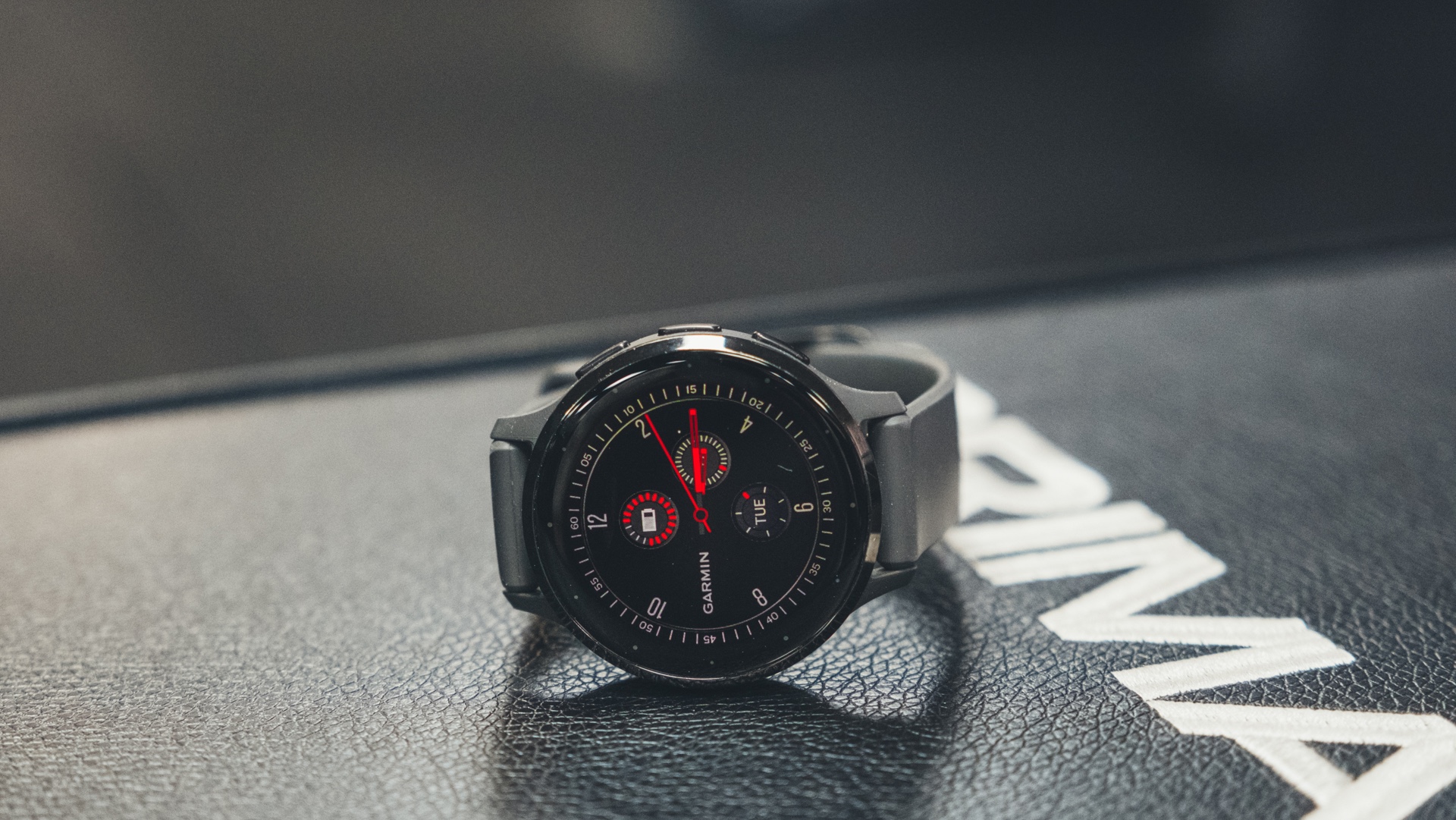
At time of writing, the Garmin Venu 3 comes in two bezel sizes. The smaller 41mm Venu 3S costs $449/£449/AUS$749 and comes in six muted colours, from pastel pinks to creams, light green and an all-black model.
The larger Venu 3, with its 45mm bezel, is the same price unless you opt for the model with a black leather strap, in which case you’ll have to part with $499/£499. We couldn’t find this particular model in Australian dollars.
When it comes to the Apple Watch Series 9, prices start at £399/$399/AUS$649 for the aluminium, 41mm case. You will have to part with an additional £20/$20/AUS$40 if you fancy the larger 45mm Aluminium case size.
Get all the latest news, reviews, deals and buying guides on gorgeous tech, home and active products from the T3 experts
Prices then increase to £699/$699/AUS$1,199 if you plump for the stainless steel casing of the same size.
Go all-out and option the largest 45mm case in Stainless and you will have to stump up £749/$749/AUS$1,279, massively eclipsing the price of the equivalent 45mm Garmin Venu 3.
Winner: The Garmin Venu 3 is the cheaper option on the most part, making it the winner here.
Apple Watch Series 9 vs Garmin Venu 3: specifications
| Header Cell - Column 0 | Apple Watch Series 9 | Garmin Venu 3 |
|---|---|---|
| Sizes | 41 mm, 45 mm | 41 mm, 45 mm |
| Weight | 31.9g/ 51.5g | 34g/ 42g |
| Case material | Aluminium or Stainless Steel | Fibre-reinforced polymer and stainless steel |
| Water rating | 5ATM | 5ATM |
| Lens material | Ion-X glass (Aluminum), Sapphire crystal (Stainless Steel) | Corning Gorilla Glass 3 |
| Display type | Always-On Retina LTPO OLED display | AMOLED (Optional Always-On mode) |
| Display resolution | 352x430 pixels (41 mm), 396x484 pixels (45 mm) | 454 x 454 pixels |
| Max brightness | up to 2,000 nits | not stated |
| Battery life | up to 36 hours | up to 26 days |
| Storage | 64GB | 8GB |
Winner: Apple just about takes it on screen brightness and its speedy processor.
Apple Watch Series 9 vs Garmin Venu 3: design and build quality
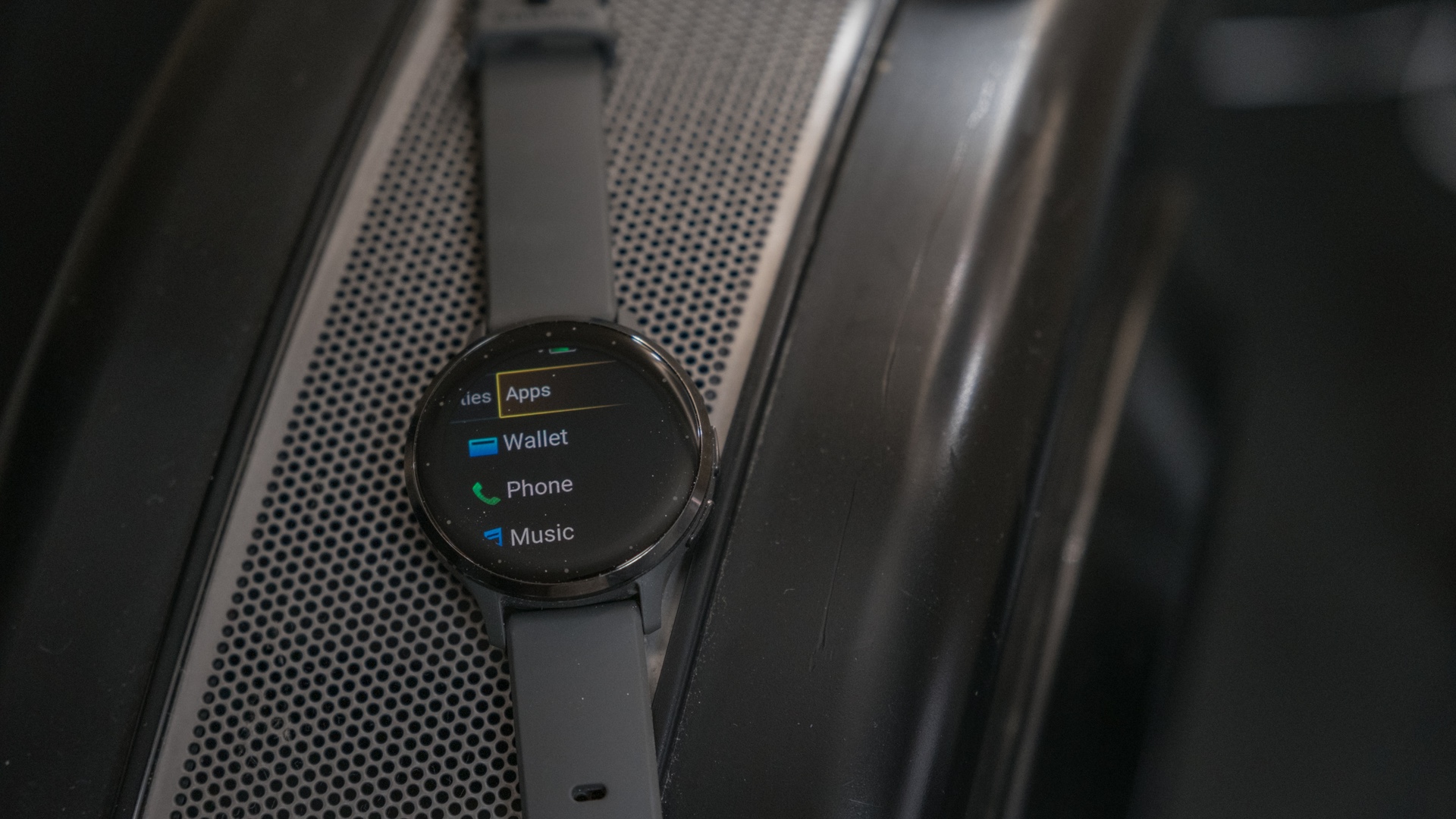
The two watches take a very different approach to both design and build quality. The Apple Watch Series 9 feels more like a piece of jewellery, with its sleek aluminium or stainless steel casing and variety of fashionable straps that are on offer.
Meanwhile, the Garmin Venu 3 feels a little more basic. This likely isn’t helped by the choice of fibre-reinforced polymer for the casing, which is perfectly robust but doesn’t exactly scream luxury.
Similarly, the black silicone strap that came with our Venu 3 test watch was more of a faded grey and can’t compete with the stylish array of bands that Apple now offers. Apple also went big with the eco-credentials this year, claiming it is the first watch to be fully “carbon neutral” while not having scrapped leather straps and has focussed on recycled materials for several of its most popular loops.
When it comes to withstanding daily life, both models are water-rated to 5ATM, which is perfectly fine for swimming but best avoided if you want to dive deeper. The displays are also very similar in size, with Garmin just pipping Apple in terms of all-out real estate.
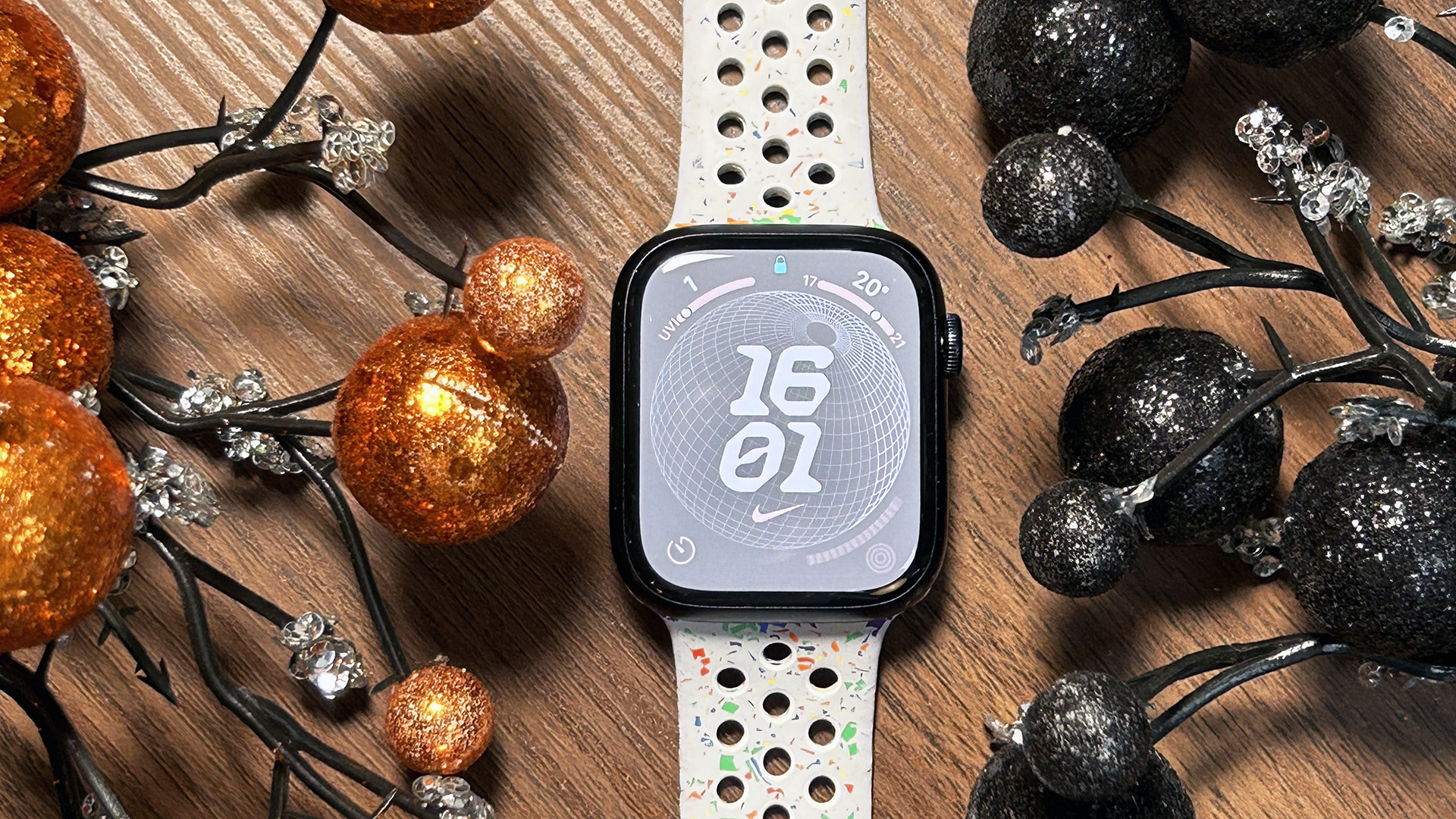
That said, Apple’s Always-On Retina Display delivers a whopping 2,000 nits of brightness, while the Venu 3 manages just 1,000. During testing, we found that it didn’t make a massive amount of difference and with brightness pumped up to max on the Venu 3, it was perfectly brought enough for most situations.
Naturally, it is difficult to compare the processors and operating systems here, as they are both very different. The latest Apple Watch Series 9 runs its S9 IsP chip, which is arguably the fastest and slickest it has ever been. It also allows for faster on-device Siri, Precision Finding for compatible iPhones and gesture control.
The Garmin user experience is slick, and menu screens flick between one another with little trouble, but we did find some requests were slower than others. Activating the on-device voice assistant, which requires a connection to a smartphone, could be a little clunky, for example.
Winner: Apple offers the better-looking watch, but the Garmin is more discreet. Personal preference rules there, but there’s no denying that Apple has the more premium-feeling watch. Apple wins.
Apple Watch Series 9 vs Garmin Venu 3: features
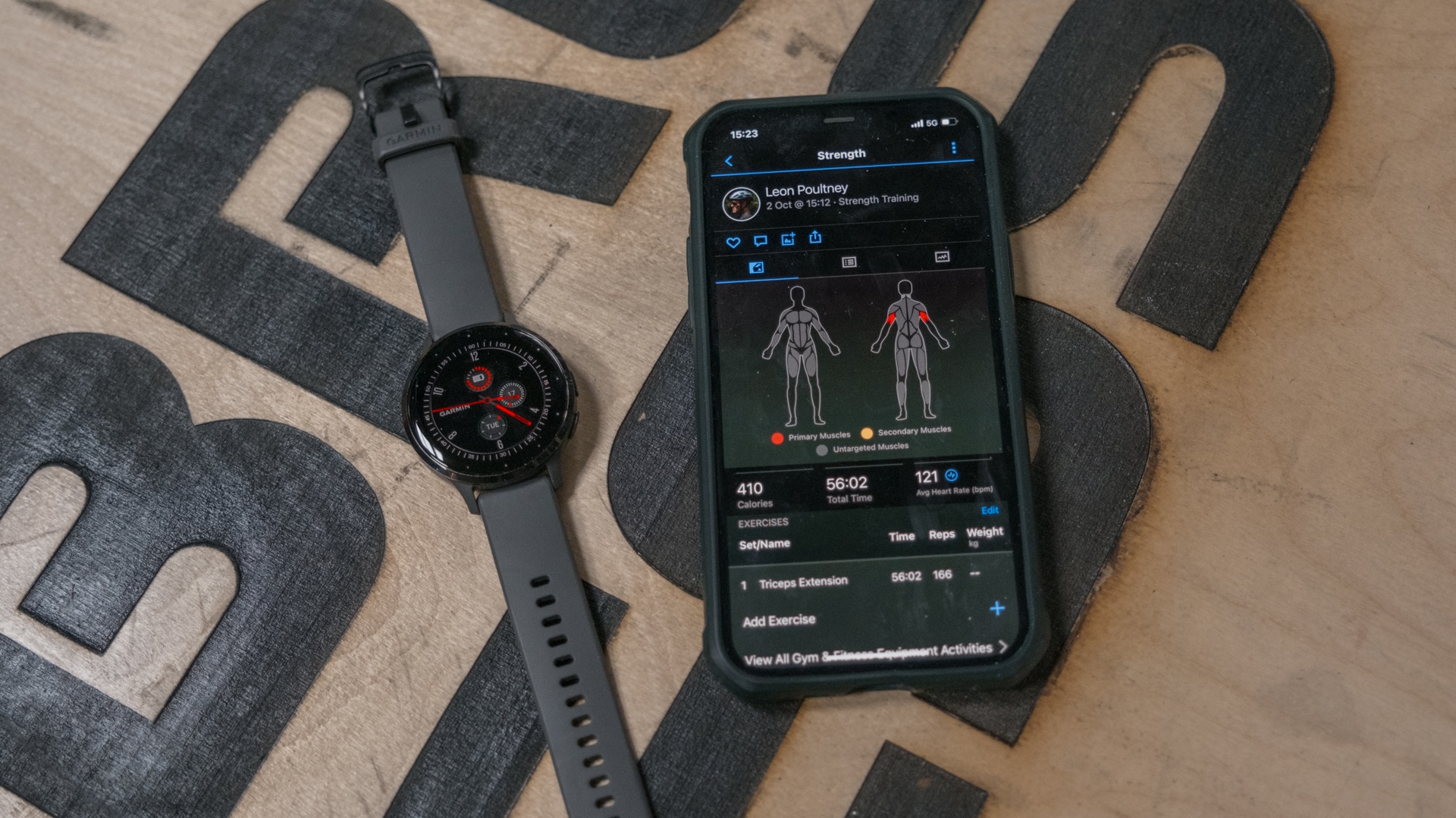
"Garmin is arguably still better for those who really like to delve into athletic performance statistics post-workout."
Both watches feature much of the same health and fitness-tracking hardware, with blood oxygen, temperature and optical heart rate sensors neatly built-in to keep track of vitals.
What’s more, they both feature accelerometers, gyroscopes and altimeters, so they can accurately track movement and increases in altitude, which helps in determining the number of stairs you have climbed in a set period.
Previously, we would have said the Garmin makes the most rounded fitness watch, but Apple has really upped its game in this department of late, offering the same built-in workout profiles, wellness features and health advice from the wrist.
Garmin is arguably still better for those who really like to delve into athletic performance statistics post-workout, as the accompanying Garmin Connect app offers reams of data for fitness fans to pore over. Similarly, it is just as easy to get topline information with a quick glance at the watch face.
That said, the Venu 3 lacks some of the real granular detail, such as VO2 Max, Training Load and Training Effect that is found on Forerunner, Fenix and Epix watches. It also doesn’t offer running power and other performance metrics without first synching an external power meter.
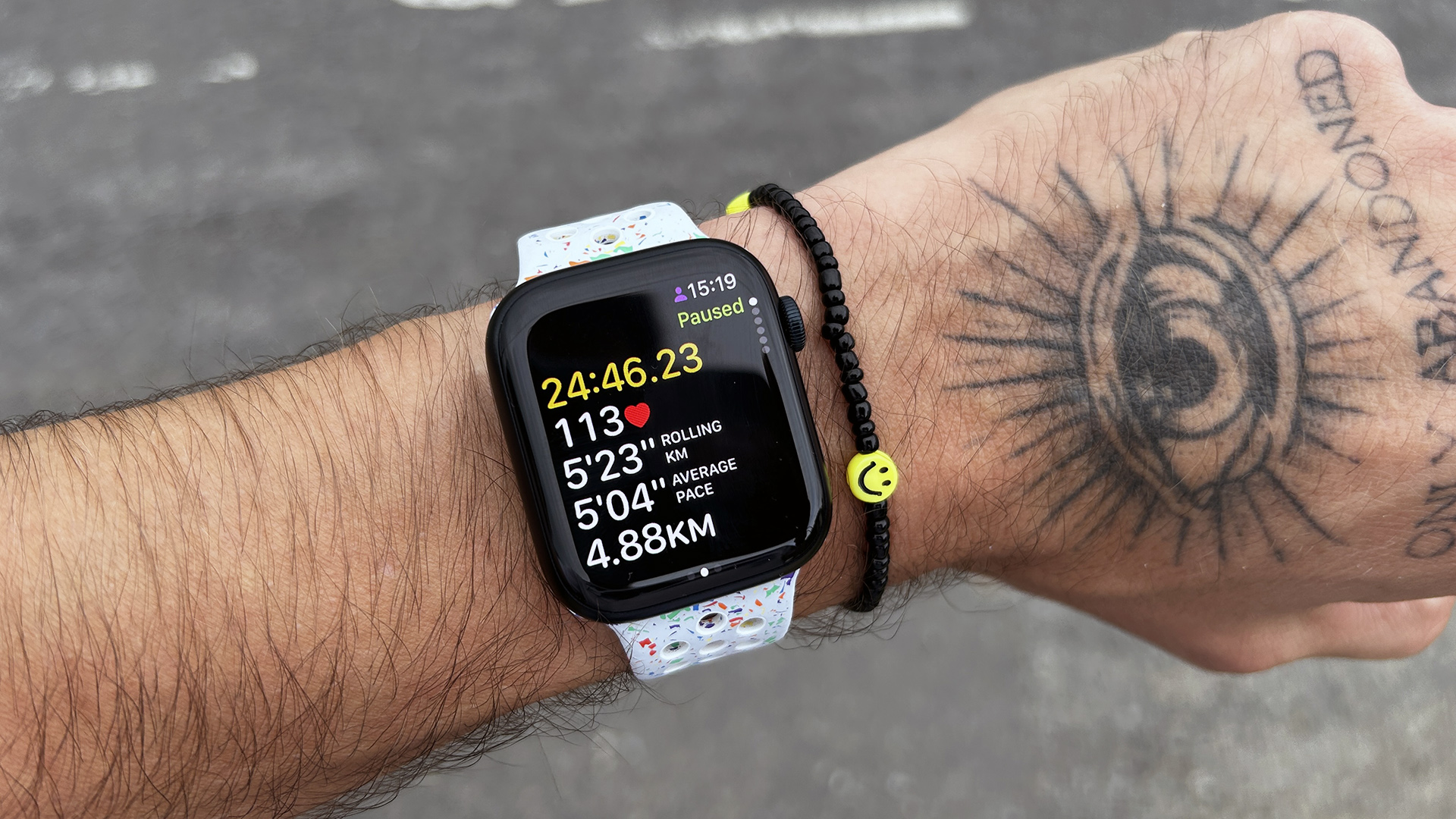
"The Apple Watch Series 9 is the far better smartwatch, so long as you are already embedded in the Apple ecosystem."
Over the years, Apple has made real headway in this area, and things like running power are available on the Apple Watch Series 9 without the need for additional sensors. What’s more, watchOS 10 now also supports third-party Bluetooth sensors, so it is possible to attach things like cycling power meters for more in-depth workout analysis.
Finally, the Apple Watch Series 9 is the far better smartwatch, so long as you are already embedded in the Apple ecosystem. Users can do so much more from the wrist, such as respond to messages and navigate with Apple Maps from the wrist, while the App Store is absolutely packed with handy software, from flight information to control over the smart home. It’s a true mirror of your smartphone’s capabilities, rather than merely paying lip service to the power of the smartphone in your pocket.
Although Garmin offers some nice features for Android users, this lack of an app store really does see it fall behind in terms of true smartwatch features. Just check out the watch faces on offer through Garmin ConnectIQ - some are questionable at best.
Plus, Apple has even introduced gesture control to deal with all of the notifications it will throw at the wearer, making it a true next-gen piece of tech.
Winner: The Apple Watch Series 9 is the far better smartwatch, but it’s also making moves on Garmin’s health and fitness tracking dominance. Apple is a clear winner.
Apple Watch Series 9 vs Garmin Venu 3: battery life

"The Garmin Venu 3 sits at the very opposite end of the spectrum, able to run for an impressive 26 days in battery-saver mode."
With great power comes great compromise, and aside from the price of the Apple Watch Series 9 eclipsing that of Garmin’s Venu 3 when you start ticking the options boxes, its battery life is also borderline embarrassing by comparison.
At the very best you can expect just over 36 hours of juice from the Apple Watch, but this is greatly impacted if you use it regularly to track runs, check emails and navigate with. During testing, we found we were charging it most days, especially when used as a sleep-tracking device.
The Garmin Venu 3 sits at the very opposite end of the spectrum, able to run for an impressive 26 days in battery-saver mode. Now, this is the absolute best case, but even under general use, we found it can easily last a week before it needs plugging in. That includes wearing it to bed.
This offers great peace of mind if you are travelling and don’t want to have to pack extra charging cables. Similarly, those out camping or enjoying life in the wilderness can also rely on their Garmin to run the course.
Worst case, you will get up to 20 hours with every single piece of GPS hardware running flat out.
Winner: The Garmin is the clear winner here and very difficult to beat.
Apple Watch Series 9 vs Garmin Venu 3: verdict
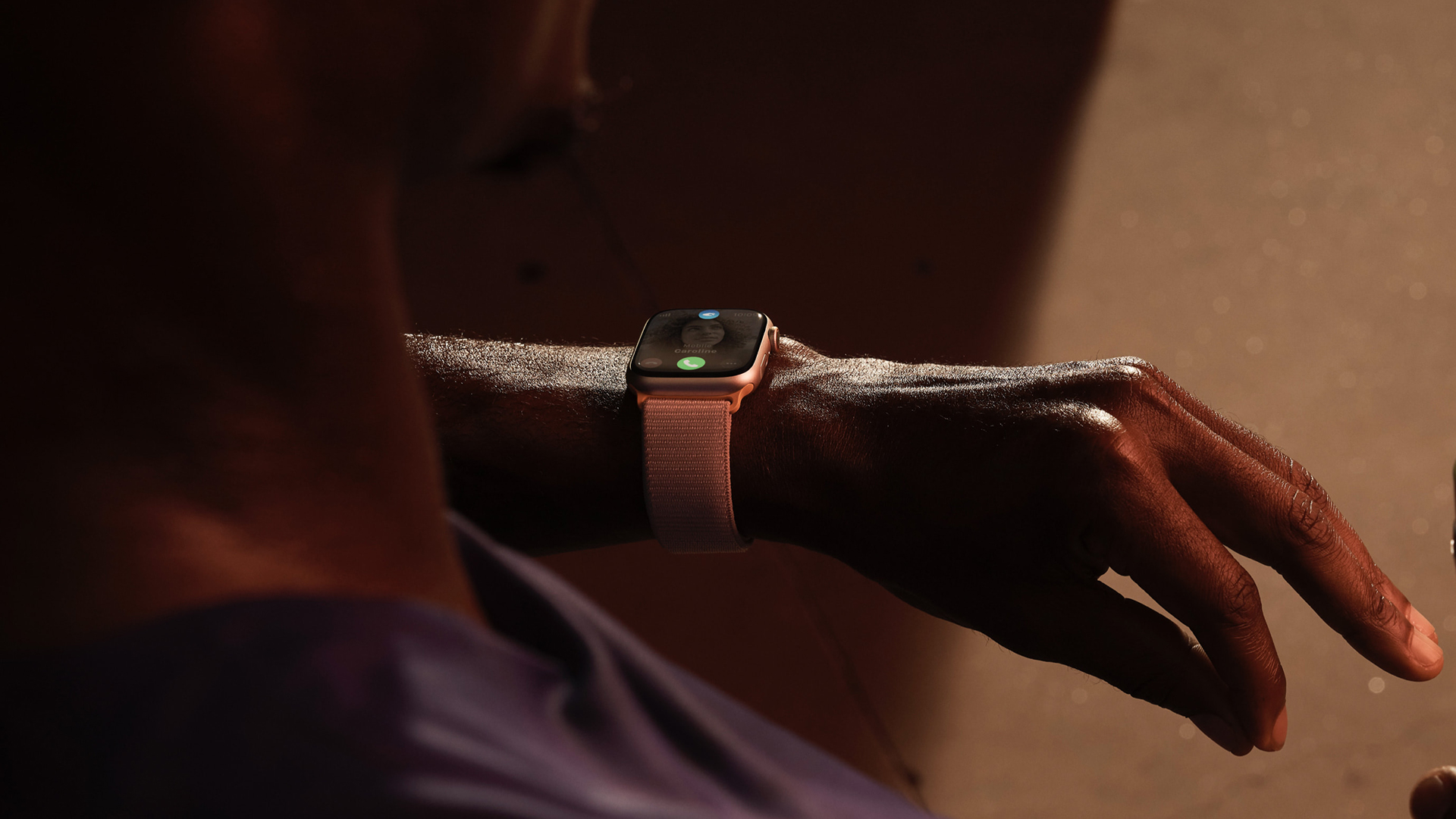
"The Apple Watch Series 9 is a formidable smartwatch that performs admirably when tasked with fitness and wellness tracking duties."
A few years ago, we would have had trouble recommending an Apple Watch as a true fitness device, seeing as it previously only scratched the surface with basic running, walking and movement metrics. This is simply not true now, and Apple really can give Garmin a run for its money when it comes to built-in workout profiles and the detail users can dive into post-session.
Perhaps Apple’s biggest downfall remains its battery life, which is pathetic compared to what Garmin can offer, while its devices are only of use to those with Apple smartphones. The Garmin is the more rounded watch, a real do-it-all device that will appeal to both iOS and Android users.
But where it tries to appeal to everyone, it lacks the smartwatch chops that Apple now brings. It simply doesn’t do the work and home life assistant stuff particularly well. Primarily, it remains a fitness watch with some smartwatch capabilities.
However, the Apple Watch Series 9 is a formidable smartwatch that also now performs admirably when tasked with fitness and wellness tracking duties. If you can handle charging it pretty much every night, it is the clear winner.
Leon has been writing about automotive and consumer tech for longer than he cares to divulge. When he’s not testing the latest fitness wearable and action camera, he’s out in a shed fawning over his motorcycles or trying not to kill himself on a mountain bike/surfboard/other extreme thing. He's also a man who knows his tools, and he's provided much of T3's drills coverage over the years, all without injuring himself.
